# Misinformation
Advertisement
Last month
March 2024
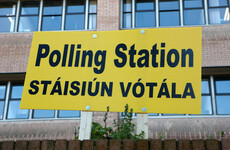
Election integrity
Electoral Commission expected to be given powers to regulate misinformation ahead of June elections
7 Mar
3.5k

8 March
Electoral Commission: Referendum poster by Senator Sharon Keogan 'an incorrect representation'
The poster is one of a number printed by the senator in the lead up to the referendum votes on Friday.
Updated
5 Mar
26.7k
92

Voices
Analysis: Understanding harmful misinformation about an LGBTQ+ ‘agenda’ in Ireland
Ciarán O’Connor
2 Mar
10.4k
This year
2024

THE MORNING LEAD
Welfare payments, immigration and throuples: The false claims being made about the March referendums
Voters will go to the polls in the two referendums a month from today.
False claims circulating include that a Yes vote will negatively affect mothers.
Misinformation has also been spread about polygamy, and about changes to child benefit.
Independent legal experts say the proposed changes are symbolic and will have little impact in law.
8 Feb
27.1k
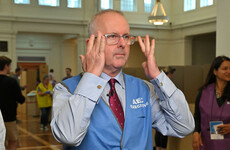
Speaking from experience
'It's all about the loser': Australia has some advice for Ireland's new electoral commission
3 Feb
17.5k
27

behind closed doors
Meta would only meet politicians if Oireachtas hearing was private (but here's what they said anyway)
31 Jan
8.2k
6

Far-right
Three new anti-immigrant parties have registered to stand in Irish elections - but who are they?
Ireland has never elected a candidate from a far-right party.

Stephen McDermott
29 Jan
38.6k

Voices
Tom Felle: Toxic language around migration is not unique to Ireland - it's playing out globally
Tom Felle
Updated
22 Jan
9.9k
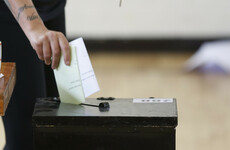
FACTCHECK
Ahead of a big electoral year, sign up to The Journal's newsletter on fake news and misinformation
18 Jan
6.9k

Artificial Intelligence
AI-driven misinformation biggest global risk ahead of major elections, according to WEF report
10 Jan
8.0k

THE MORNING LEAD
Conor McGregor: Is the UFC's biggest star becoming a poster boy for Ireland's far-right?
The 35-year-old has hinted at a run for the presidency.
8 Jan
2.2k

THE MORNING LEAD
Conor McGregor: Is the UFC's biggest star becoming a poster boy for Ireland's far-right?
8 Jan
30.2k

Fitness To Practice
Professional misconduct allegations against HSE physio who made false claims about Covid-19 upheld
5 Jan
19.1k
Last year
2023

Immigration
Tánaiste says 'no easy answers' to immigration question, but 'no one can take law into their own hands'
20 Dec 2023
7.2k

Misinformation
Tánaiste accepts need to address people’s fears about immigration with evidence-based approach
19 Dec 2023
9.9k

dublin riots
European Commission: 'No evidence' that far-right used Irish language online during riots
1 Dec 2023
10.0k

FACTCHECK
Debunked: Gardaí have not installed 'watch towers' on O'Connell Street after riots in Dublin
29 Nov 2023
17.5k

Dublin riot
TDs photographed with far-right figures are 'laundering conspiracy theories', Dáil warned
29 Nov 2023
29.1k

FACTCHECK
Dublin riots: How a mob in the capital turned to looting, arson and calls to kill
Dublin city centre was largely shut down last night as rioters attacked gardaí, looted shops and set vehicles on fire.
What exactly happened in Dublin city and how did the situation escalate so quickly?
To understand that, we need to explore what has been happening online in terms of anti-immigration rhetoric
As is often the case with a breaking news story, many rumours gained traction yesterday before the truth had time to emerge
24 Nov 2023
73.4k
RELATED
As it happened: Increased Garda presence in Dublin, Opposition declare no confidence in Commissioner
24 Nov 2023
Schools close early and clinics cancelled at Temple Street amid fears of unrest in central Dublin
24 Nov 2023
Aoife Barry: I didn’t recognise the Dublin I witnessed yesterday - it was terrifying
24 Nov 2023

Twitter
Elon Musk's X sues media non-profit over portrayal of site as full of antisemitism
21 Nov 2023
8.0k

FACTCHECK
Major analysis shows how Irish disinformation ecosystem has been 'co-opted by far-right actors'
20 Nov 2023
16.7k
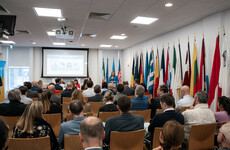
FACTCHECK
Ireland “a victim of Russian disinformation”, experts on Ukraine war say
17 Nov 2023
12.4k

Artificial Intelligence
YouTube to regulate 'synthetic' content amid fears that AI is spreading misinformation and scams
14 Nov 2023
5.9k
16

Social Media
EU opens disinformation probes into Meta and TikTok over spread of Israel-Hamas content
19 Oct 2023
3.6k

THE MORNING LEAD
FactCheck: Misleading claims about sex education found on leaflets about the SPHE curriculum
16 Oct 2023
22.8k

Social Media
EU extends warning about disinformation surrounding Israel-Hamas war to YouTube bosses
Updated
13 Oct 2023
10.5k

Misinformation
TikTok dismantles operation that targeted Irish users with 'divisive views' on nationalism
28 Sep 2023
14.8k
69

Voices
Tom Clonan: There is a real danger now of serious injuries or fatalities at a far-right protest
Tom Clonan
21 Sep 2023
41.6k
30
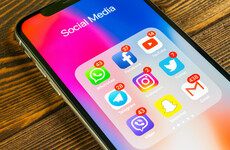
Report
Major internet companies not doing enough to combat misinformation, report finds
10 Sep 2023
8.4k
72

THE MORNING LEAD
Inside Ireland's culture war on gender: Why there's more debate on trans issues than ever before
19 Aug 2023
49.9k

FACTCHECK
Debunked: Incompatible athlete death stats continue to be used to mislead about vaccines
17 Aug 2023
20.0k

FACTCHECK
Debunked: No, a factory in England is not growing human meat for consumption
8 Aug 2023
3.6k

Yoel Roth
Elon Musk has 'ambivalent' stance on misinformation and harassment, ex-Twitter safety chief claims
30 Jun 2023
4.5k
10

FACTCHECK
A global summit on combatting misinformation starts today - sign up here for updates
28 Jun 2023
5.2k

Voices
Opinion: When it comes to news trust, AI presents both opportunities and risks
Dr Kirsty Park
14 Jun 2023
3.6k
2

THE MORNING LEAD
'It's relentless': The toll of online abuse on community groups supporting asylum seekers
6 Mar 2023
15.1k

Voices
FactCheck newsletter: Despite Covid's lessons about fake news, history is now repeating itself
Stephen McDermott
5 Mar 2023
11.2k

THE MORNING LEAD
The 15-minute city: how Ireland's conspiracy theorists grew to fear an urban planning concept
26 Feb 2023
35.3k
66


